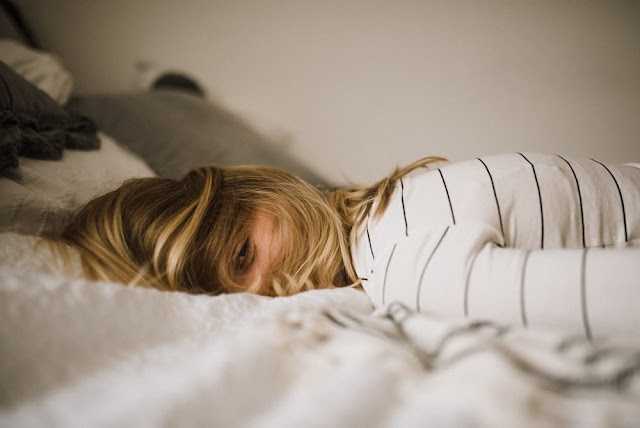Sleep Disorders: Types, Symptoms, Causes, Management Techniques
Sleep Disorders
Sleep disorder is a type of illness that has an impact on a person's capacity to get enough and restful sleep. These disorders can impact the quantity, quality, or timing of sleep, and can lead to a range of negative consequences, including fatigue, daytime sleepiness, poor concentration, mood disturbances, and impaired performance at work or school.
Sleep disorders can affect people of all ages and can be caused by a variety of factors, such as medical conditions, medications, substance use, psychological disorders, or environmental factors. There are many different types of sleep disorders, including insomnia, sleep apnea, restless legs syndrome, narcolepsy, and circadian rhythm disorders.
Types of Sleep Disorders
There are many different types of sleep disorders, and the exact number can vary depending on how they are categorized. The Diagnostic and Statistical Manual of Mental Disorders, Fifth Edition (DSM-5) identifies 10 main types of sleep disorders, including:
- Insomnia disorder
- Hypersomnolence disorder
- Narcolepsy
- Breathing-related sleep disorders (such as sleep apnea)
- Circadian rhythm sleep-wake disorders
- Non-rapid eye movement sleep arousal disorders
- Nightmare disorder
- Rapid eye movement sleep behavior disorder
- Restless legs syndrome
- Substance/medication-induced sleep disorder
In addition to these 10 types of sleep disorders, there are also other conditions that can impact sleep, such as parasomnias (sleep-related behaviors), sleep-related movement disorders, and sleep-related eating disorders. Overall, there are many different sleep disorders that can affect individuals, and proper diagnosis and treatment is important for managing these conditions.
Symptoms of Sleep Disorders
The symptoms of sleep disorders can vary depending on the specific type of disorder a person is experiencing. However, some common symptoms of sleep disorders include:
- Difficulty falling asleep or staying asleep
- Excessive daytime sleepiness or fatigue
- Loud snoring or breathing pauses during sleep
- Gasping or choking during sleep
- Restless or disrupted sleep
- Sleepwalking or other sleep-related behaviors
- Vivid or disturbing dreams or nightmares
- Sleep-related headaches or migraines
- Inability to stay awake during the day
- Difficulty concentrating or remembering things
- Changes in behaviour or attitude, such as depression or irritability
- Reduced sex drive or impotence
- Increased heart rate or blood pressure during sleep
- Waking up frequently to use the bathroom.
It is important to speak with a healthcare provider for proper diagnosis and treatment, If you are experiencing any of these symptoms.
Causes of Sleep Disorders
There are many different causes of sleep disorders, and they can vary depending on the specific type of disorder.
Medical conditions: Many medical conditions can interfere with sleep, such as chronic pain, respiratory problems, heart disease, and neurological disorders.
Mental health disorders: Sleep disorders can be a symptom of mental health conditions such as depression, anxiety, and bipolar disorder.
Substance use: The use of drugs, alcohol, and certain medications can disrupt normal sleep patterns and contribute to sleep disorders.
Environmental factors: Factors such as noise, light, and temperature can interfere with sleep quality and duration.
Sleep habits: Poor sleep habits, such as irregular sleep schedules, late-night screen time, and consuming caffeine or alcohol close to bedtime, can contribute to sleep disorders.
Genetics: Some sleep disorders, such as narcolepsy, have a genetic component.
Age: Changes in sleep patterns and quality are a normal part of the aging process, and older adults are more likely to experience sleep disorders.
Hormonal changes: Hormonal changes during pregnancy, menopause, and other times of life can impact sleep.
Overall, there are many different factors that can contribute to sleep disorders. Proper diagnosis and treatment requires identifying the underlying cause(s) of the sleep disorder, and addressing them through lifestyle changes, medications, or other interventions as appropriate.
Management Techniques of Sleep Disorders
There are several management techniques for sleep disorders, which can vary depending on the type of disorder and its underlying causes. Here are some common approaches:
Improving sleep hygiene: This involves adopting healthy sleep habits, such as maintaining a regular sleep schedule, creating a relaxing sleep environment, avoiding caffeine and alcohol before bedtime.
Cognitive-behavioral therapy for insomnia (CBT-I): This is a form of therapy that aims to identify and change negative thoughts and behaviors related to sleep, and improve sleep habits and routines.
Medications: Depending on the type of sleep disorder, medications may be prescribed to help with falling asleep, staying asleep, or managing symptoms such as restless legs syndrome or sleep apnea.
Treating underlying medical or mental health conditions: If a sleep disorder is caused by an underlying medical or mental health condition, treating that condition may help improve sleep.
Light therapy: This can be helpful for people with circadian rhythm disorders, and involves exposure to bright light in the morning to help regulate the sleep-wake cycle.
Relaxation techniques: Techniques such as meditation, deep breathing, and progressive muscle relaxation can help reduce stress and promote relaxation, which can improve sleep.
Exercise: Regular exercise can improve sleep quality and duration, but it is important to avoid vigorous exercise close to bedtime.
Overall, the best management techniques for sleep disorders will depend on the specific type of disorder and its underlying causes. Working with a healthcare provider or sleep specialist can help identify the most effective strategies for managing sleep disorders.





.jpg)
Comments
Post a Comment